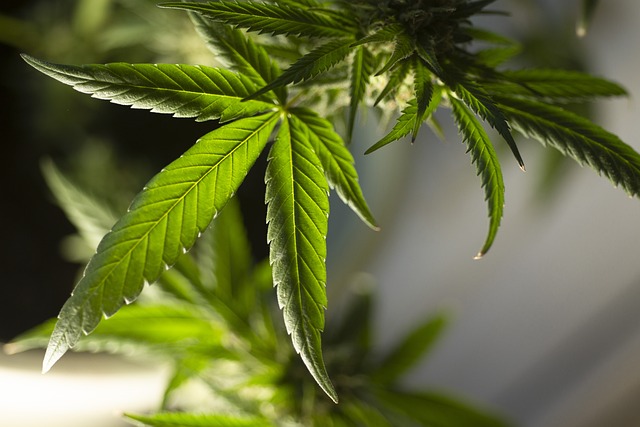Montana has legally paved the way for THCA (Tetrahydrocannabinolic Acid), a non-psychoactive cannabinoid found in raw cannabis, to be explored for its therapeutic potential. With state laws and regulations in place, adults can legally possess, grow, and consume THCA flowers as an alternative to psychoactive products, avoiding the 'high' typically associated with cannabis. The state's legislation is in line with federal guidelines allowing hemp derivatives like THCA, ensuring the safety and quality of these products. THCA has gained attention for its potential health benefits, including anti-inflammatory and neuroprotective properties, without intoxicating effects. As research continues to advance, Montana remains at the forefront of cannabis innovation, offering a legal pathway for consumers to explore THCA's wellness applications responsibly and within the bounds of the law.
exploration into the therapeutic and wellness properties of THCA flower, specifically within the legal framework of Montana, reveals a burgeoning field with significant implications for health and regulation. This article delves into the nuanced differences between THCA and its psychoactive counterpart, THC, and elucidates how THCA’s potential benefits are being embraced in Montana’s progressive cannabis market. We will navigate the evolving landscape of THCA legality, safety in consumption, and the scientific community’s interest in this non-psychoactive cannabinoid. Join us as we uncover the multifaceted world of THCA flower and its role in Montana’s health and wellness initiatives.
- ThCA Flower Benefits and Legality in Montana: An Overview
- What is THCA and How Does it Differ from THC?
- The Emergence of THCA as a Promising Cannabinoid
- Potential Health Benefits of THCA Flower in Montana
- Understanding the Effects of THCA on the Body and Mind
- Legal Status of THCA Flower in Montana: A Comprehensive Look
ThCA Flower Benefits and Legality in Montana: An Overview
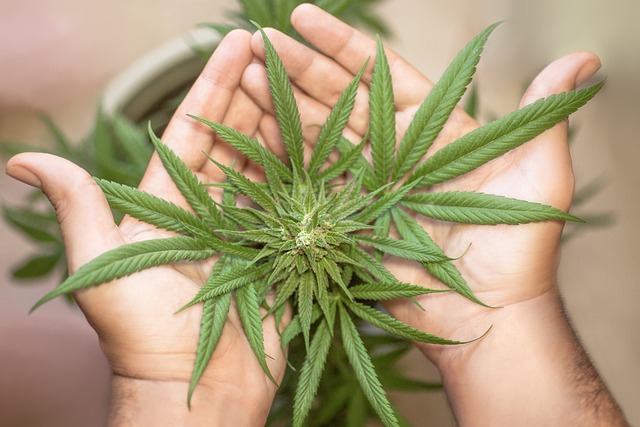
THCA, or Tetrahydrocannabinolic Acid, is a non-psychoactive cannabinoid found in raw or fresh cannabis flowers that, when heated, converts into the well-known psychoactive compound THC. The interest in THCA stems from its potential therapeutic properties, which are being studied for their impact on various health conditions. In Montana, where the cultivation and use of cannabis for medical and recreational purposes are legally sanctioned under state law, THCA flowers have gained attention for their medicinal benefits. These benefits may include pain relief, anti-inflammatory effects, and potential neuroprotective qualities. Montana’s legal framework allows adults 21 years of age and older to possess, grow, and use cannabis for recreational purposes, with certain restrictions and licensing requirements for commercial operations. Medical patients in Montana also have access to a range of cannabis products, including THCA flowers, which can be used as an alternative to smoked or vaporized cannabis to avoid combustion-related health risks. The state’s regulatory body oversees the production and sale of these products, ensuring they are safe for consumer use while adhering to the guidelines set forth by both state and federal law. Understanding the legal status of THCA flowers in Montana is crucial for consumers and businesses alike, as it navigates the evolving landscape of cannabis legislation within the United States.
What is THCA and How Does it Differ from THC?
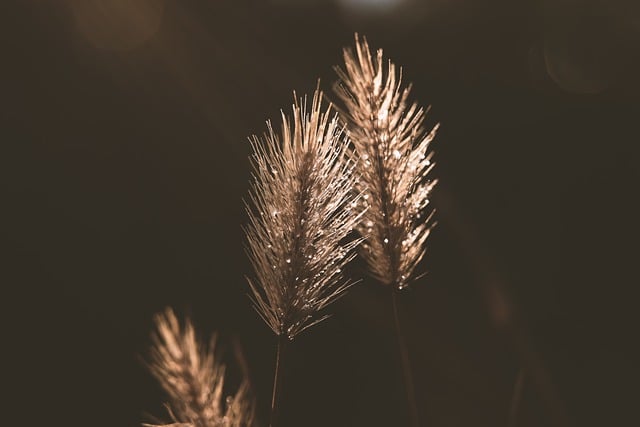
Delta-9-tetrahydrocannabinolic acid, commonly referred to as THCA, is a non-psychoactive cannabinoid found in raw cannabis plants. Unlike its well-known isomer delta-9-tetrahydrocannabinol (THC), THCA does not induce the typical ‘high’ associated with cannabis consumption. Instead, THCA is being studied for its potential therapeutic properties, which include anti-inflammatory and neuroprotective effects. The transformation of THCA into THC occurs through a process called decarboxylation, typically when cannabis is heated, leading to the activation of its psychoactive properties.
In Montana, where both medicinal and recreational use of cannabis are legal under state law, THCA has garnered attention for its potential health benefits. The legal landscape in Montana allows for the exploration of THCA’s effects without the psychoactive impact of THC. This distinction is particularly significant for individuals seeking the therapeutic benefits of cannabinoids without the associated high. As research continues to unfold, the use of raw cannabis flowers rich in THCA may provide an alternative avenue for wellness and health support, with implications that extend beyond the traditional consumption methods of heated cannabis products. This interest in THCA is reflected in Montana’s evolving cannabis market, where products specifically targeting the benefits of this cannabinoid are becoming more prevalent.
The Emergence of THCA as a Promising Cannabinoid

Montana’s progressive stance on cannabis has paved the way for the exploration and utilization of its various compounds, including THCA, which is gaining recognition for its potential wellness benefits. Tetrahydrocannabinolic acid (THCA) is the non-psychoactive precursor to THC, the primary psychoactive component of cannabis. As research continues to unfold, scientists and enthusiasts alike are recognizing THCA’s therapeutic properties. Preliminary studies suggest that THCA may offer anti-inflammatory, neuroprotective, and analgesic effects without the high associated with its counterpart, THC. This has led to an increase in interest and innovation within Montana’s legal cannabis industry, where THCA is being extracted and utilized in various products, from oils and tinctures to edibles and topicals. The emergence of THCA as a promising cannabinoid aligns with Montana’s evolving cannabis policies, which have been instrumental in allowing for the cultivation, research, and consumption of cannabis and its derivatives within legal boundaries. This has positioned Montana at the forefront of the burgeoning cannabinoid market, offering opportunities for both medical and recreational users to explore the myriad benefits of THCA flower, legally and responsibly.
Potential Health Benefits of THCA Flower in Montana
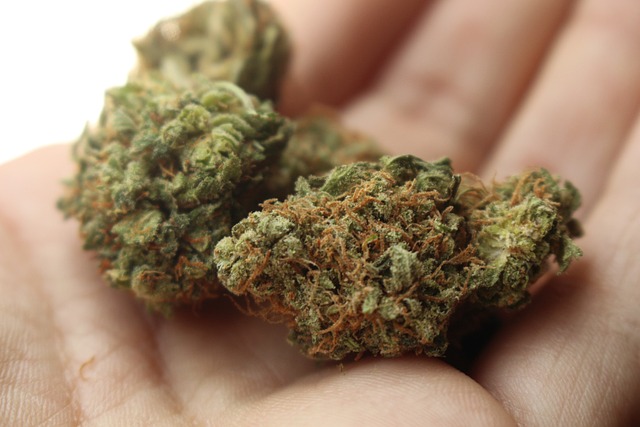
In recent years, the potential health benefits of THCA flower, or tetrahydrocannabinolic acid, have garnered attention among residents of Montana, where THCA is legal. Unlike its psychoactive counterpart THC, THCA is non-psychoactive, making it an appealing option for those seeking the therapeutic properties of cannabis without the ‘high.’ Early research suggests that THCA may offer a range of benefits, including anti-inflammatory and neuroprotective effects. Montana’s legal landscape allows for the exploration of these potential health benefits in a regulated environment, with studies and anecdotal evidence pointing to its promising uses in managing pain, nausea, and various neurological disorders. The non-psychoactive nature of THCA flower ensures that users can potentially reap the medicinal properties while maintaining clear-headedness and functionality throughout their day. As Montana continues to pioneer in cannabis research, the spotlight on THCA’s benefits is increasingly revealing its potential as a natural remedy for various conditions, with ongoing clinical trials set to further elucidate its efficacy and applications.
Understanding the Effects of THCA on the Body and Mind
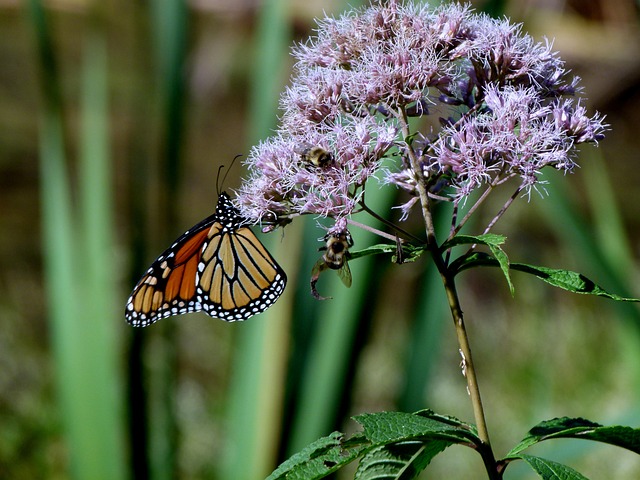
THCA, or tetrahydrocannabinolic acid, is a non-psychoactive compound found in cannabis and hemp plants that has garnered attention for its potential therapeutic properties. As THCA legal in Montana, residents can explore its benefits within the confines of the law. Preliminary research suggests that THCA interacts with the body’s endocannabinoid system, which plays a significant role in regulating various physiological processes, including pain sensation, mood, and appetite. Unlike its decarboxylated form THC (tetrahydrocannabinol), THCA does not induce psychoactive effects, making it an appealing option for individuals seeking the potential health benefits of cannabinoids without the high.
In the context of the body and mind, THCA is believed to exhibit anti-inflammatory, neuroprotective, and analgesic properties. Studies have indicated that THCA may help in managing inflammation and pain, which could be beneficial for conditions like arthritis or chronic pain. Its neuroprotective effects are also under investigation for potential applications in treating neurological disorders, such as multiple sclerosis and epilepsy. Furthermore, THCA’s interaction with the body’s CB1 receptors, which are abundant in the brain, may contribute to its anxiolytic (anxiety-reducing) effects, making it a subject of interest for individuals experiencing anxiety or stress-related conditions. As research continues to unfold, the understanding of THCA’s effects on the body and mind deepens, offering promising insights into its therapeutic potential, especially in legal jurisdictions like Montana.
Legal Status of THCA Flower in Montana: A Comprehensive Look

In recent years, the legal status of cannabis derivatives has been a subject of considerable interest and legislative activity across various states in the U.S., with THCA (Tetrahydrocannabinolic Acid) gaining attention for its potential wellness benefits. Montana, known for its progressive stance on cannabis, has specific laws regarding the legality of THCA flower. As per Montana’s legislation, THCA is legally recognized and can be sold in forms that are compliant with the state’s Industrial Hemp Program. The 2018 Farm Bill federally legalized hemp derivatives, including CBD and THCA, provided they contain less than 0.3% THC on a dry weight basis. Montana has leveraged this federal legislation to create a regulatory framework that allows for the cultivation and sale of hemp-derived products, including smokable hemp flower containing THCA, as long as it meets the state’s guidelines. It is crucial for consumers to purchase these products from licensed dispensaries or retailers to ensure compliance with local, state, and federal laws. The Montana Department of Agriculture oversees hemp cultivation, ensuring that all THCA products are produced under regulated conditions that guarantee safety and efficacy, aligning with the state’s stringent regulations on cannabis-related substances. Understanding the legal intricacies surrounding THCA flower in Montana is essential for both retailers and consumers to navigate this emerging market responsibly and within the bounds of the law.
Montana’s progressive stance on cannabinoids has paved the way for a deeper understanding of THCA’s potential health benefits and its legal status within the state. This article has explored the unique properties of THCA, distinguishing it from its psychoactive counterpart, THC, and delving into the myriad ways it may benefit well-being. As the legislative landscape continues to evolve, Montana residents can look forward to harnessing the advantages of THCA flower within a regulated framework. With ongoing research shedding light on its therapeutic properties, THCA’s legal presence in Montana signals an exciting frontier in cannabinoid science and medicine.
